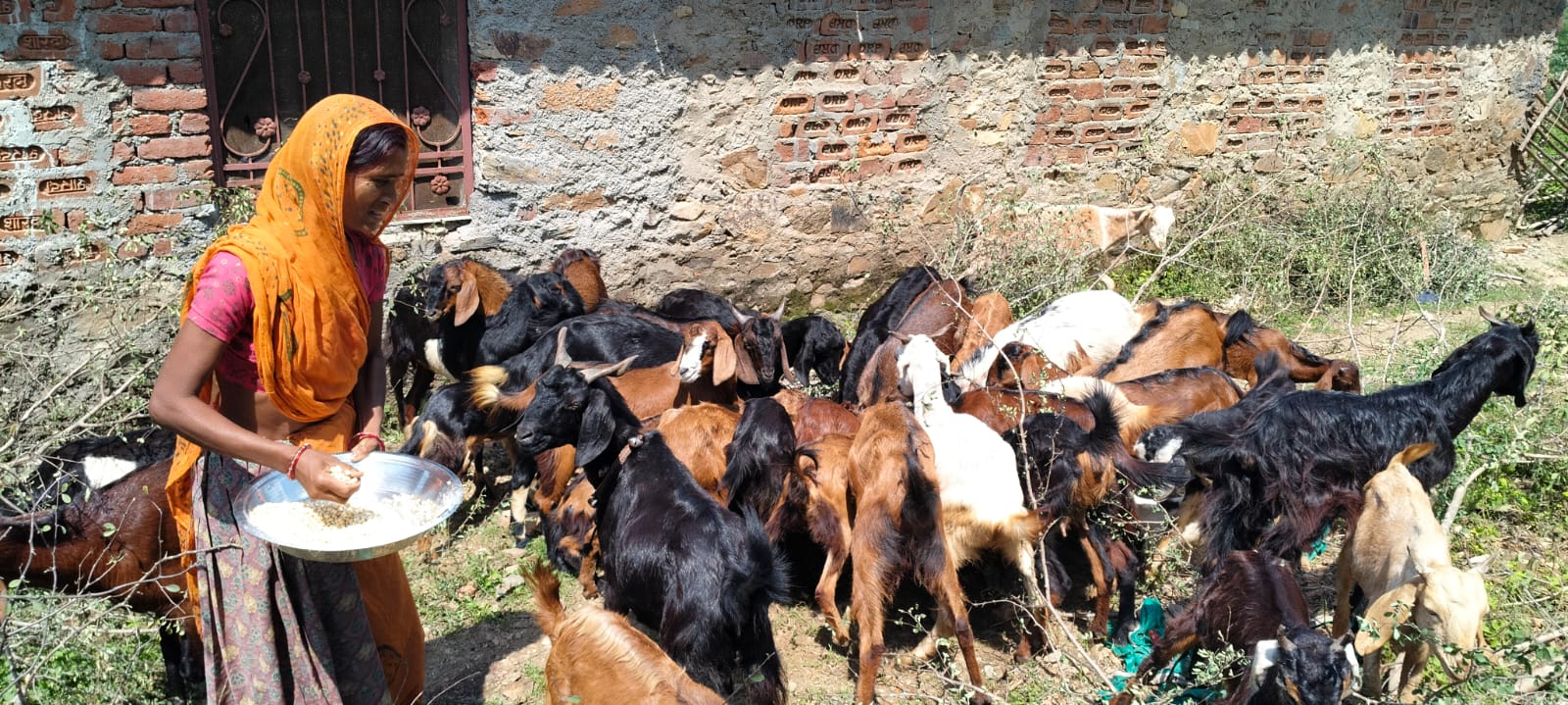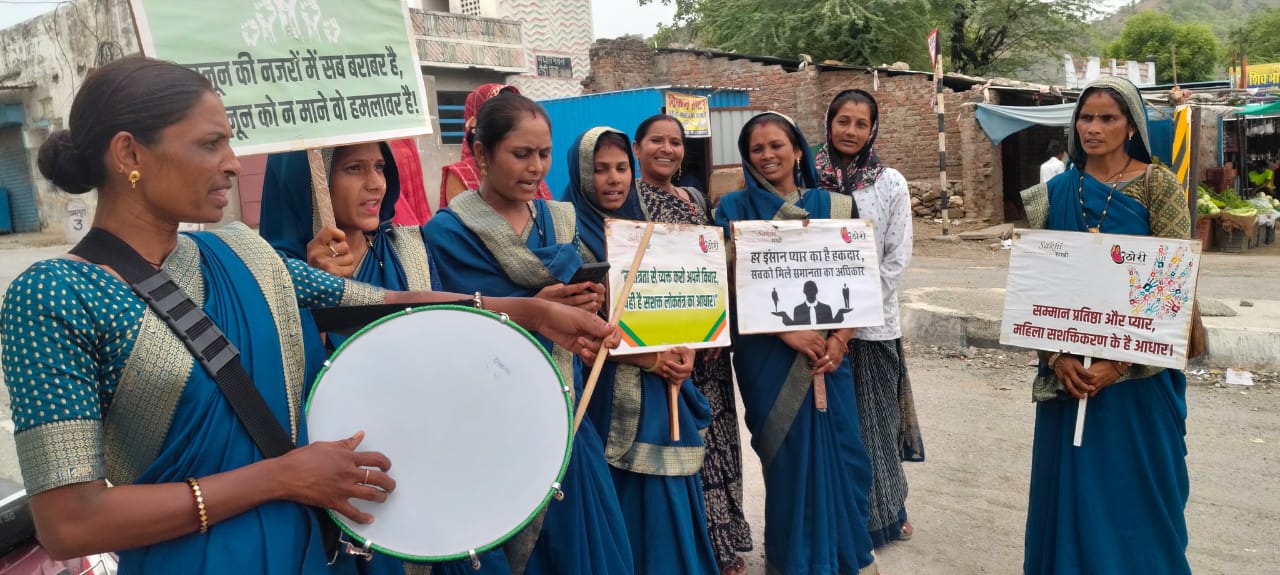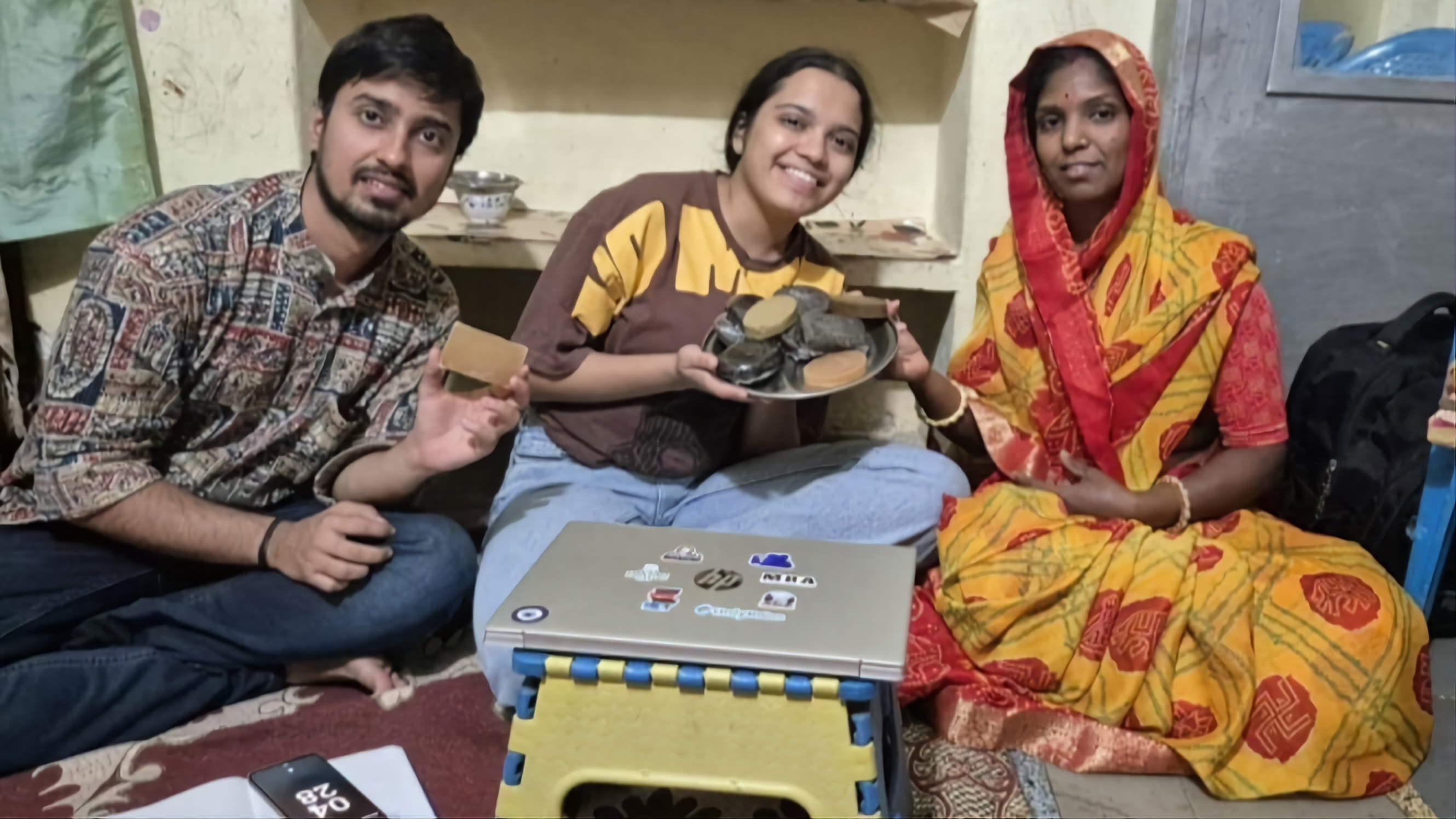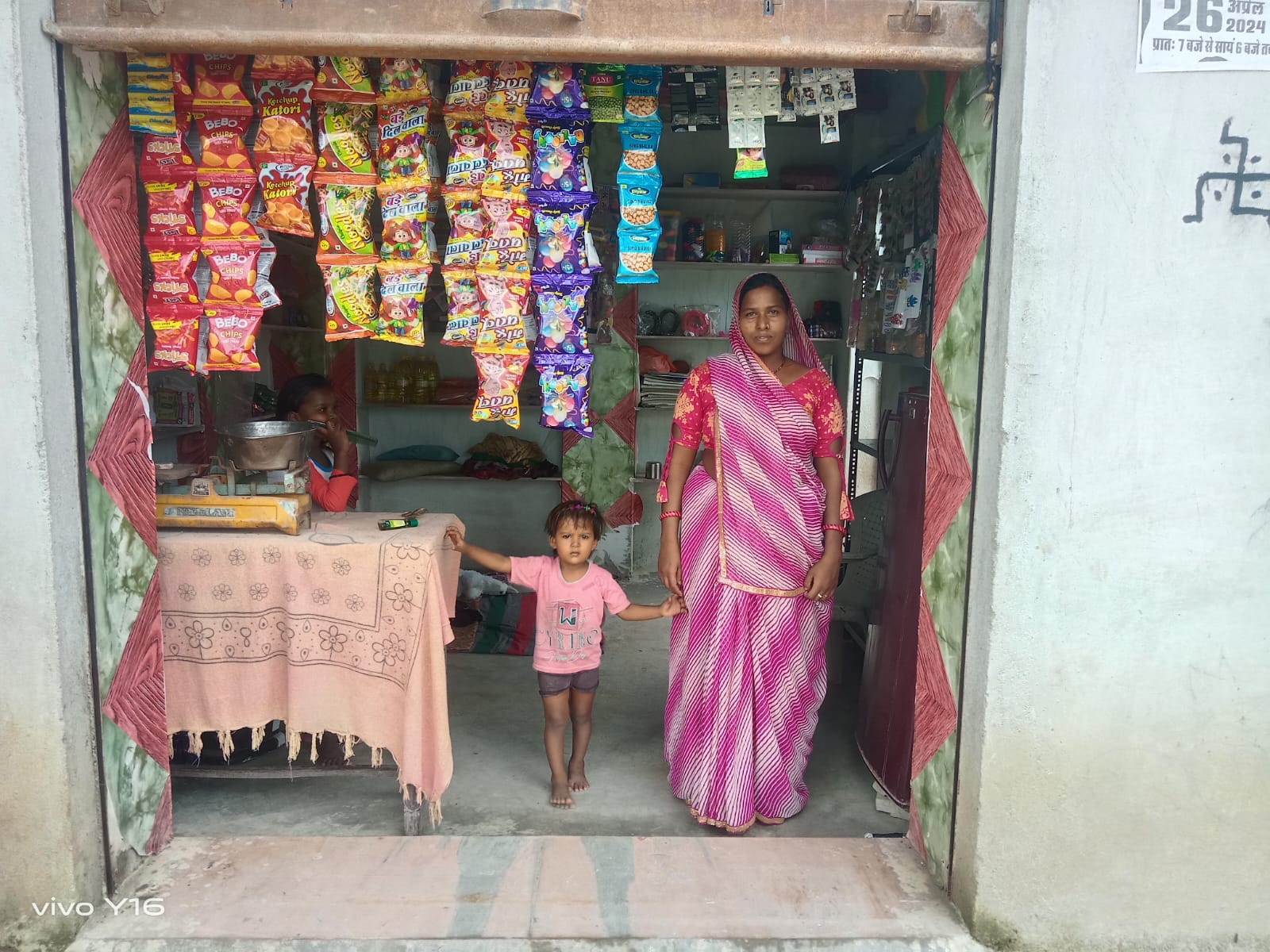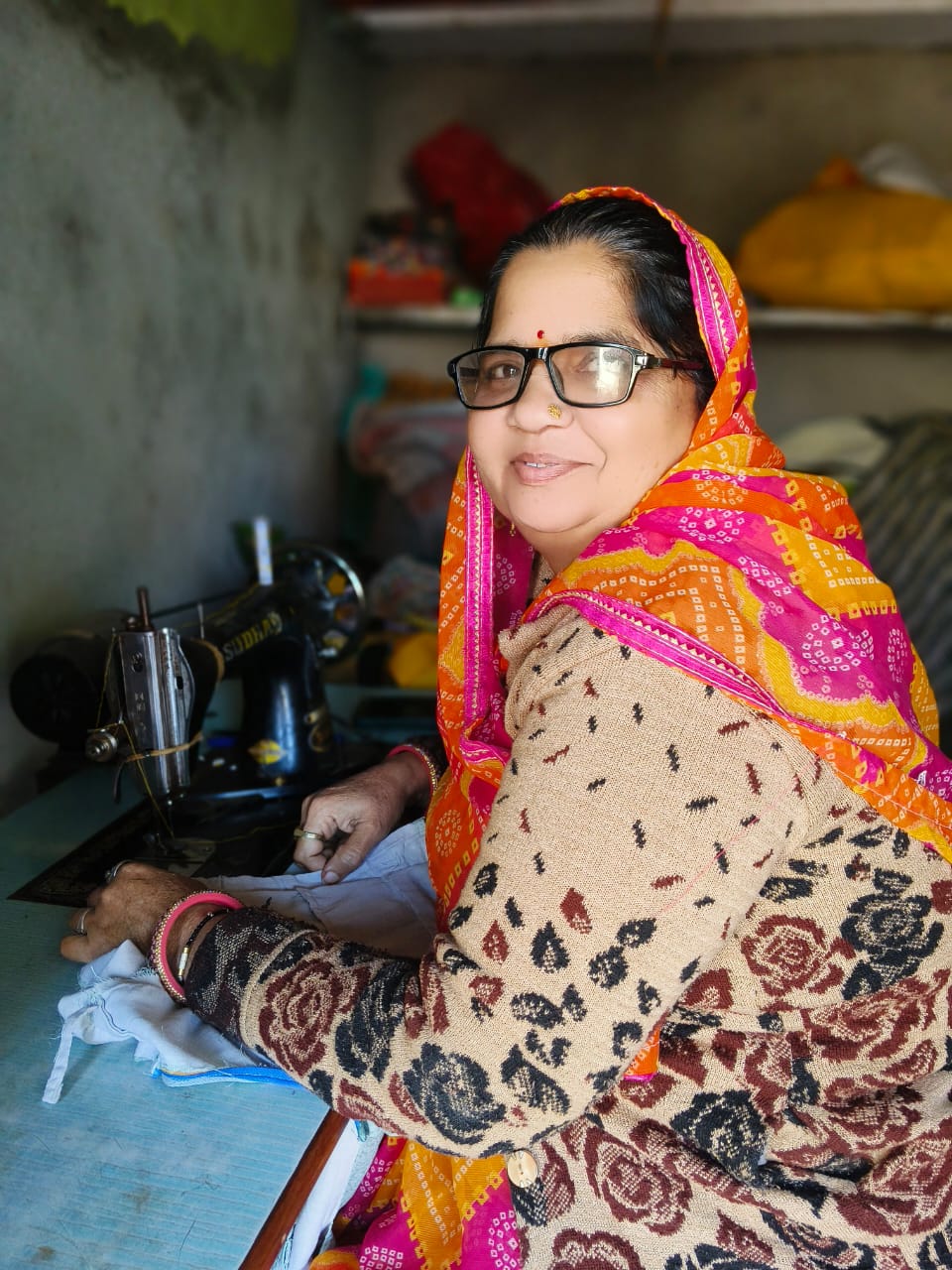
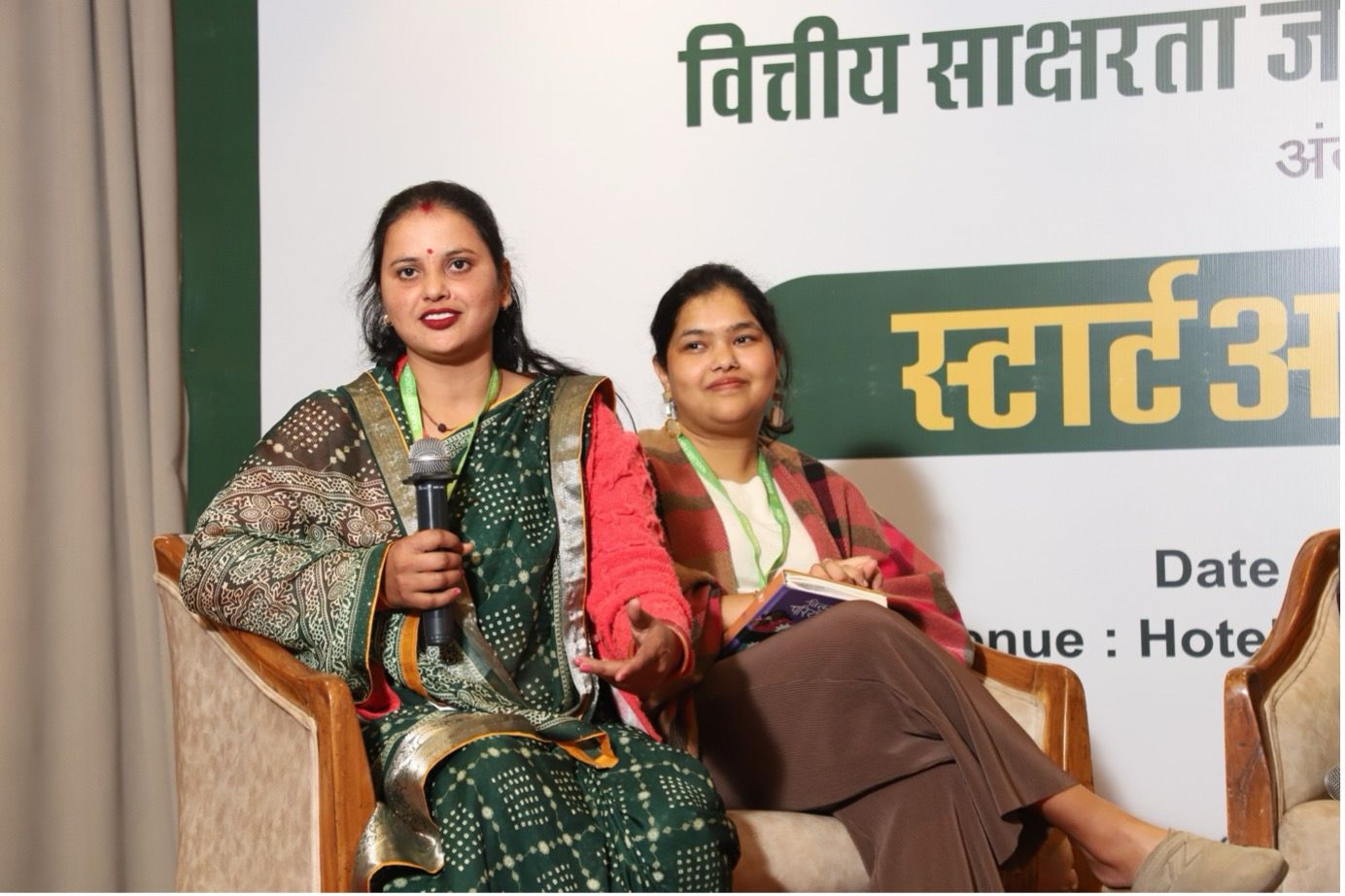
From Fields to Financial Freedom: How Rural Women are Rewriting Their Futures
Change doesn’t arrive with a bang - it starts quietly, in the rhythmic hum of a sewing machine, the clinking of milk cans, or the chatter of women in a Self-Help Group (SHG) meeting. Over time, these small moments weave into a bigger story of empowerment, resilience, and hope. The UN Women Fund is one such catalyst of change. Nationwide, it has already disbursed ₹6 crore in affordable loans, empowered 1,541 women entrepreneurs, and created 2,283 jobs.
At Manjari Foundation, we have seen first-hand how these numbers translate into transformed lives in the villages we work with.
Loans that Sow Seeds of Change
In Datia, Reena Devi took her first loan to buy a sewing machine. She recalls:
"Earlier, I worked as a daily wage labourer. It was never enough. Now, I run a small tailoring shop from home. I can pay my children’s school fees on time and even save a little every month."
In Tikamgarh, Gumni Adivasi used her loan to purchase an auto-rickshaw for her husband, who had been sitting idle for four months due to lack of work. Today, the auto provides a steady income, easing financial stress for the family. During another field visit, I met a young woman who proudly opened her own beauty parlour—something she had dreamed of since her marriage. “I always wanted to do this,” she told me with a shy smile, “but we never had the money for equipment. This loan made it possible.”
More than Money—It’s Trust in Women’s Potential
The Rang De model works because it blends access to finance with faith in rural women’s capabilities. At Manjari Foundation, our community mobilizers guide women in using their loans wisely—whether that’s expanding a dairy business, starting a grocery shop, or investing in a new skill. We also conduct Financial Literacy (FL) training to strengthen women’s ability to manage their resources effectively. These sessions cover practical topics like savings, responsible loan management, basic banking services, and the safe use of ATMs. Every training is paired with a pre- and post-assessment to measure knowledge improvement, ensuring women not only gain access to funds but also the skills to handle them confidently.
With each loan repaid and reinvested, confidence grows. Women begin to talk about profit margins, customer demand, and long-term business plans—concepts once far from their daily conversations.
The Ripple Effect of Economic Independence
When women earn, the impact reaches far beyond their own lives. They invest in better food, education for their children, and improvements to their homes. In some villages in Bundelkhand, women entrepreneurs are even mentoring younger SHG members, passing on skills and business know-how.
A Partnership That Works
For us at Manjari Foundation, the UN Women Fund is more than just a financial tool—it’s a partnership built on trust, dignity, and the belief that rural women can lead the way in community transformation. We’ve seen the spark it ignites. From a first-time loan for a goat to the expansion of a small shop into a thriving enterprise, each story is a step toward a future where women control their own resources and destinies. And if there’s one thing rural life has taught us, it’s: when you invest in a woman’s dream, you don’t just change her life—you change the life of her entire community.
